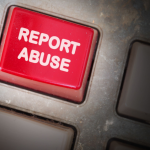Is Doxxing a Criminal Offence In Australia?

The Albanese government is proposing a new criminal offences for ‘doxxing’, after chat logs of a pro-Israeli WhatsApp group in Australia were released online last week.
The details were leaked by pro-Palestinian activists who were documenting the involvement of prominent Australians in the group. The WhatsApp members worked to silence individuals who have been critical of allegedly genocidal actions by Israel in Gaza against civilians. Members included journalist Ginger Gorman, editor Roz Bellamy and satirist John Safran.
Critics of the ‘doxxing’ have said that the act has opened up Jewish Australians to anti-Semitic harassment and death threats. Further, some members of the group, including Gormon, claim they have been caught in the crossfire as they did not share the pro-Israel views of other participants.
Supporters of the doxxing point out that there is public interest in the leak, as many in the group organised targeted ‘cancelation’ campaigns against pro-Palestinian voices in the media and arts, including ABC host Antoinette Lattouf who was fired from hosting duties for sharing human rights concerns about the actions of Israel in Gaza.
The act of doxxing is rarely pursued as a crime in Australia unless it forms part of an ongoing harassment campaign (which was not the case here). Nevertheless, Victoria Police have publicly claimed that they are looking into potential “criminal breaches of privacy” in relation to the chats.
The following outlines what doxxing is, the potential Federal charge of utilising a carriage service to ‘menace, harass or cause offence’ and potential defences available to the leakers of the WhatsApp chat.
What is doxxing?
Doxxing involves deliberately exposing an individual’s identity, personal information, or private details online without their consent, often with a view to influencing their behaviour and/or punishing them or seeking revenge for conduct which the perpetrator disapproves of.
The act of revealing private information without consent is not a recent phenomenon, but advancements in internet-connected technologies have made it significantly easier to gather, store, track, and publicly share such information. The proliferation of online platforms has further broadened the reach of potential harassers, amplifying the potential harm once identifying details are exposed.
The term “doxxing” is derived from “dropping documents,” and the information disclosed may come from publicly available sources, research of public records, or unauthorised access to private databases and computer systems (commonly known as hacking).
Unlike defamation, doxxing does not necessarily involve spreading false or damaging information about an individual, rather, the disclosed information is typically accurate, regardless of whether it was obtained lawfully.
The offence of using a carriage service to menace, harass or cause offence
Section 474.17 of the Criminal Code Act 1995 – which applies across Australia – prescribes a maximum penalty of 3 years in prison for using a ‘carriage service’ – such as phone or internet – in a way that a reasonable person would regard as menacing, harassing or offensive.
“Harassing” is not defined in the Act. However, acts deemed as “menaces” are defined under section 138.2 as including:
- A threat (whether express or implied) of conduct that is detrimental or unpleasant to another person;
- A general threat of detrimental or unpleasant conduct that is implied because of the status, office or position of the maker of the threat.
“Offensive” is a broad term. Section 473.4 of the Act states that in determining whether material is offensive, reference is to be had to:
- the standards of morality, decency and propriety generally accepted by reasonable adults; and
- the literary, artistic or educational merit (if any) of the material; and
- the general character of the material (including whether it is of a medical, legal or scientific character).
In that regard, they would need to establish beyond a reasonable doubt it is considered offensive to “the standards of morality, decency and propriety generally accepted by reasonable adults”.
Defending against a charge
It is important to be aware that the onus rests on the prosecution to prove any allegation beyond a reasonable doubt.
Leakers of the WhatsApp chats could explore a range of a defences against the charge, the strongest being that the act would not be considered by a reasonable adult as ‘harassing, menacing or causing offence’.
It could be argued that the doxxing did not constitute ‘menaces’ as no threats were made. Further it could be argued the doxxing did not constitute ‘offensive’ conduct as the actions were in keeping with generally accepted moral norms and in the public interest.
In addition to having to prove each of the listed ingredients of the charge, the prosecution must also disprove beyond reasonable doubt any valid legal defence that is raised on the evidence.
These defences include:
- Duress
- Necessity, and
- Self-defence
Should doxxing laws be reformed?
Pro-Israel activists have called for the expansion of the Criminal Code to criminalise the publishing of identifying information about a person or group with malicious intent.
However, as with other recent incidents involving social media, the proposal raises serious concerns about the use of the criminal law to curtail freedom of speech, particularly freedom of political communication.
The leaking of private conversations is often seen as a legitimate means to hold people accountable for hypocritical or malicious actions. Arguably harms which arise from the leaking of confidential information are better dealt with under the civil law and private dispute resolution, rather than the strong arm of the criminal law.
Finally, many pro-Palestinian activists online have pointed to the seemingly malicious campaigns organised on the leaked WhatApp to have prominent creatives and media figures fired or maligned as evidence of hypocrisy regarding the use of the internet for ill-intent.
Going to court?
If you are going to court for an doxxing charge, call us anytime on 9261 8881 to arrange a free first conference where one of our experienced criminal defence lawyers can advise you of your options and the best way forward.






